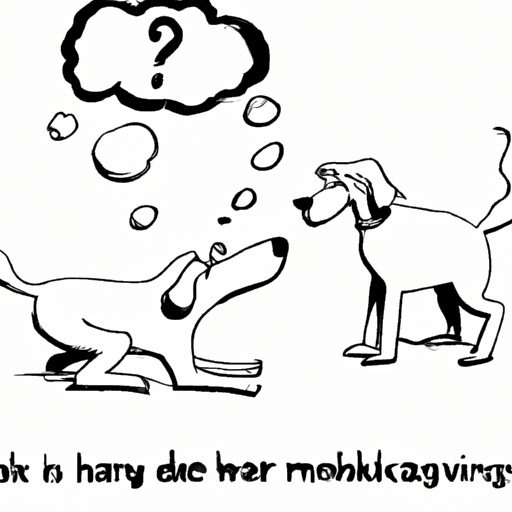As a dog owner, it’s natural to wonder about your pet’s behaviors. One behavior you might have noticed is your dog pecking or nuzzling other dogs. This can be puzzling, but understanding the reasons behind it can help you better understand your furry friend.
1. Understanding Dog Behavior
To comprehend why your dog might peck other dogs, it’s crucial to understand general dog behavior first.
Dogs are social creatures by nature, inheriting most of their behaviors from their wild ancestors, the wolves. They use a variety of ways to communicate, including vocalization, body language, and physical contact. Pecking or nuzzling is one form of physical contact that has specific meanings in the canine world.
Communicating through Pecking
Pecking can be a way for dogs to show affection, similar to how humans might hug or pat each other on the back. Dogs also use pecking to explore their environment and other dogs. This behavior can be seen when they meet new dogs or when they are trying to get to know their surroundings better.
Pecking as a Submissive Behavior
Dogs often peck other dogs to demonstrate submission. By doing this, they are acknowledging the other dog’s higher status in the social hierarchy. This is common in situations where there is a new dog in the household or when two dogs are meeting for the first time.
2. Factors Influencing the Pecking Behavior
Several factors can influence your dog’s pecking behavior. Understanding these can help you manage their behavior better.
Age and Breed
Age and breed play a significant role in your dog’s behavior. Some dog breeds are more social and tactile than others, and young dogs or puppies tend to be more playful and exploratory.
Training and Socialization
Your dog’s training and socialization also greatly affect their behavior. Dogs that are well-trained and socialized are more likely to peck other dogs in a friendly, non-aggressive manner.
| Factors | Influence on Pecking Behavior |
|---|---|
| Age and Breed | Young dogs and certain breeds are more likely to peck |
| Training and Socialization | Well-trained and socialized dogs peck in a friendly manner |
3. Managing Your Dog’s Pecking Behavior
While pecking is a natural behavior in dogs, there might be instances where it’s inappropriate or even potentially harmful.
Positive Reinforcement
Use positive reinforcement to discourage excessive or aggressive pecking. Reward your dog when they interact appropriately with other dogs and distract or redirect them when they start to peck too much.
Training and Socialization
Ensure your dog is well-trained and socialized. This will help them understand when it’s appropriate to peck and when it’s not.
4. When to Seek Professional Help
If your dog’s pecking behavior becomes excessive, aggressive, or causes harm to other dogs, it might be time to seek professional help.
Consult a Veterinarian
A sudden change in your dog’s behavior, including pecking, could indicate a health issue. If you notice any changes, consult your veterinarian right away.
Hire a Professional Dog Trainer
A professional dog trainer can help manage and modify your dog’s behavior. They can provide you with techniques and strategies tailored to your dog’s needs.
5. Frequently Asked Questions
1. Is it normal for dogs to peck other dogs?
Yes, it’s a normal behavior in dogs. They do it for various reasons, including showing affection, exploring, or demonstrating submission.
2. How can I manage my dog’s pecking behavior?
You can manage your dog’s pecking behavior through positive reinforcement, training, and socialization. If the pecking becomes a problem, consider seeking professional help.
3. When should I be concerned about my dog’s pecking behavior?
If your dog’s pecking becomes excessive, aggressive, or causes harm to other dogs, it’s time to consult a professional. A sudden change in behavior could also indicate a health issue, so don’t hesitate to consult your veterinarian.
By understanding why your dog pecks other dogs, you can foster a safer, healthier environment for your pet and others. Remember, dogs communicate differently than humans, and pecking is just one way they express themselves.



